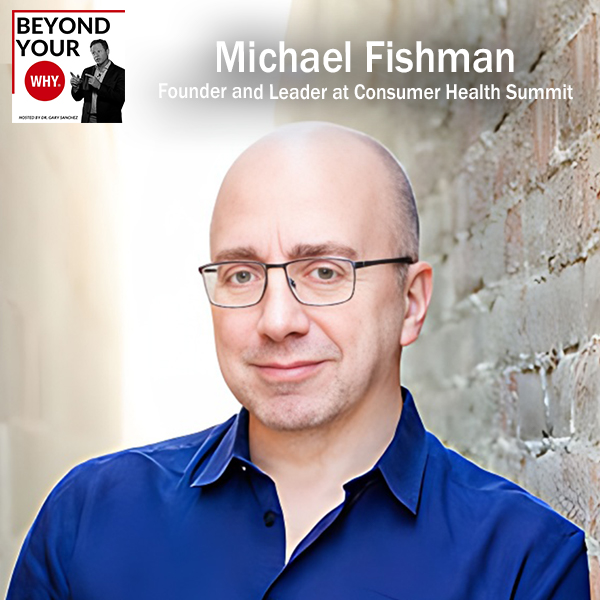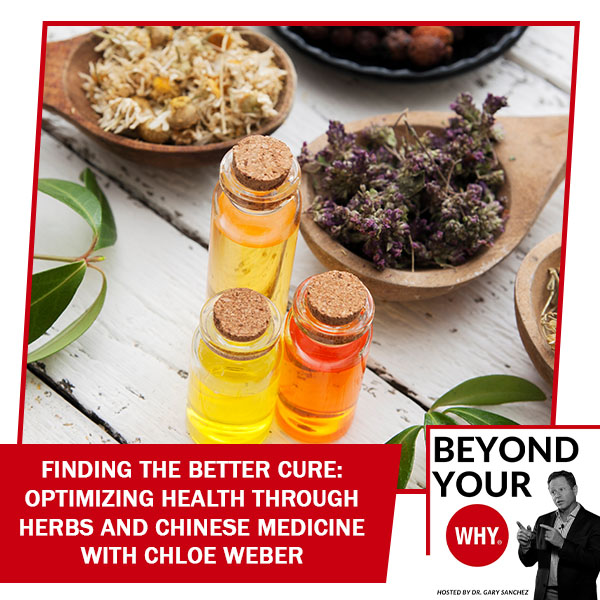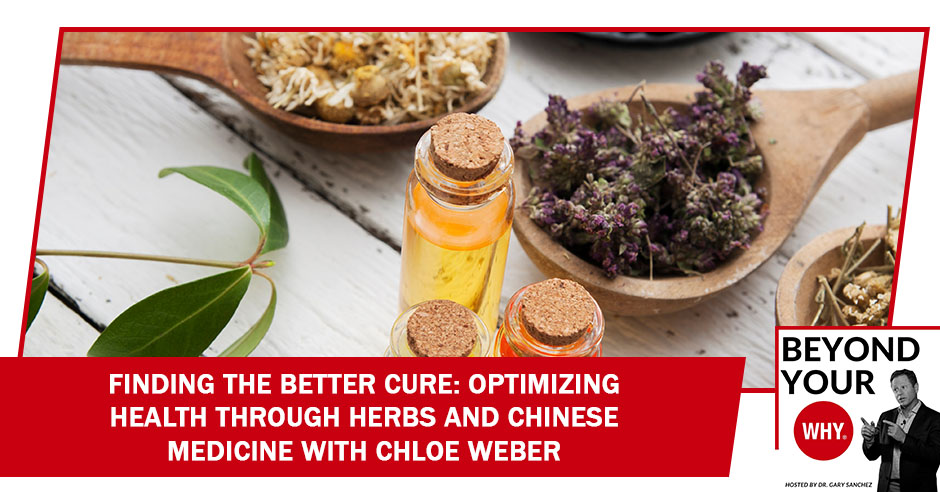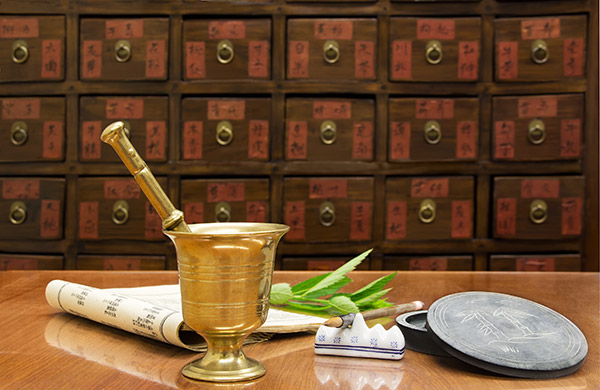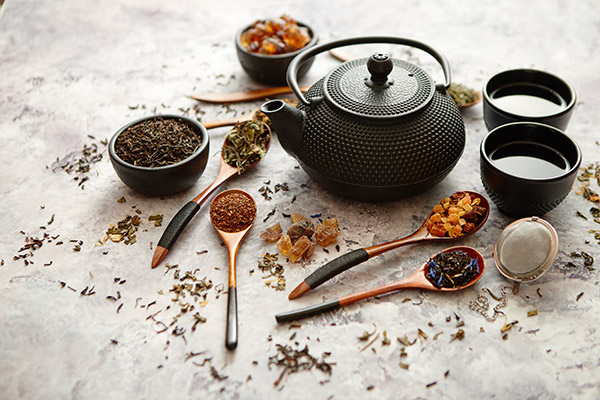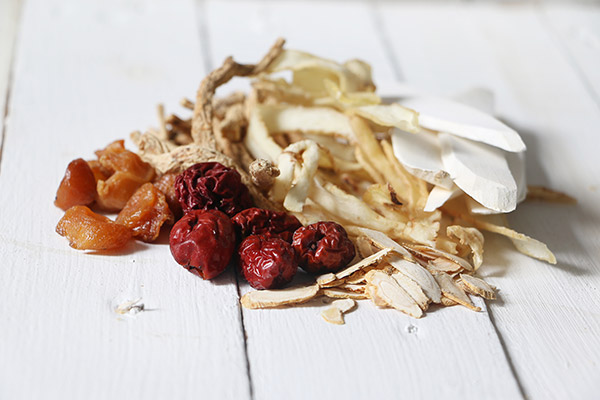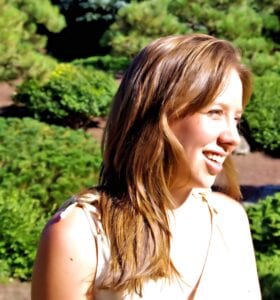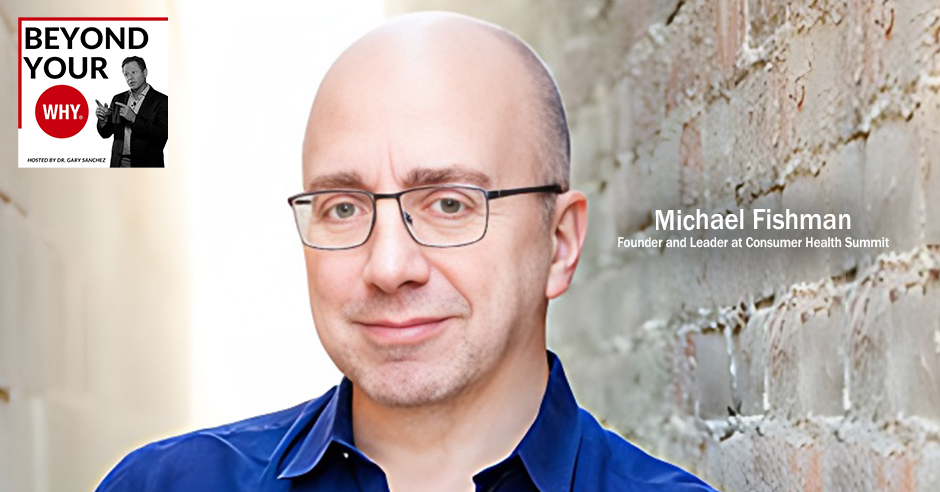
There are just so many things written about marketing that it becomes even more complicated to figure out how best to do it. Great thing that this episode’s guest has the WHY of Make Sense, and he is driven to solve complex situations, especially in marketing. Join Dr. Gary Sanchez as he interviews Michael Fishman, a growth advisor to founders, leader of Consumer Health Summit, and a strategic angel investor. Here, Michael lets us in on how he helps companies with their marketing as well as build their brands through the right message. He wades through the complexities and shares the most important word you need to know in marketing. Hint: it’s not the word “free.” Full of insights on business and psychology, Michael gives us a show full of wisdom to add to our tool belt. Don’t miss out on them by tuning in to this conversation!
—
Watch the podcast here
Listen to the podcast here
Build Your Brand With The Right Messaging And Marketing With Michael Fishman
This is a great episode you’re going to love. I get to interview Michael Fishman. He is a marketing strategist. You will find him fascinating. He helped companies like Bulletproof, Athletic Greens, Thrive Market, The DNA Company, BrainTap, and Prevention Magazine to build their brands through the right messaging. His specialty is messaging. In this episode, he shares with us how he does that and the most important word that you need to know in marketing. It’s not the word free. You will see what it is in this episode. I have seven pages of notes from listening to Michael Fishman. You’re going to love it. Let me know what you think. Enjoy this episode.
—
In this episode, we’re going to be talking about the Why of Make Sense to make sense of things, especially if they’re complex and complicated. If this is your why, then you are driven to solve problems and resolve challenging or complex situations. You have an uncanny ability to take in lots of data and information. You tend to observe situations and circumstances around you and then sort through them quickly to create solutions that are sensible and easy to implement.
Often you are viewed as an expert because of your unique ability to find solutions quickly. You also have a gift for articulating solutions and summarizing them in understandable language. You believe that many people are stuck and that if they could make sense of their situation, they could develop simple solutions and move forward. In essence, you help people get unstuck and move forward.
I’ve got a great guest for you. His name is Michael Fishman. He’s a growth advisor to founders, the leader of the Consumer Health Summit founder community and a strategic Angel investor. From his early twenties after earning a Bachelor’s degree in Environmental Science and Biology from Binghamton University, he knew that helping companies that help people to feel better, perform better, and live longer would be the focus of his professional life. This is his purpose to advise founders for whom the currency of success is impact, with valuation and financial awards, a natural by-product.
For many years, he has been a leading advisor to founders on marketing, positioning, and accelerated customer-centric business growth, helping to grow businesses, many from inception such as Bulletproof, Athletic Greens, Thrive Market, The DNA Company, Suggestic, BrainTap and Rodale Prevention and Men’s Health publishing brands, as well as many of the leading personal brands who serve large online customer communities. Michael, welcome to the show.
I’m honored to be here, Gary. Thanks for the honor.
This is going to be fun. There was a lot more to your bio that we’re going to get into because it was about a page and a half long, but I would rather have us talk about it than read about it. Michael, tell everybody where are you at. What town are you in?
I’m in Paradise Valley, Arizona, which is adjacent to Scottsdale and Phoenix.
Let’s go back to your life. Let’s start with when you were younger. Where did you grow up? What were you like in high school?
I grew up in Queens, which is part of New York City. In high school, I was insecure, shy, tentative, and cautious. I had a bunch of friends but not the cool kids. I was on the tennis team. That was a passion. That sums it up.
You played tennis. Were you much of a problem solver at that time? Did your close friends come to you and ask you to help them with different things that they were dealing with?
I don’t think so. I started to develop a sense of self and the ability to be introspective and to learn what was residing within my heart, my soul and my range of capabilities came early in my college years. I had a few friends in high school. I could see the beginning or the germination of that part of me, but it certainly wasn’t well-developed nor did it have a lot of self-expression.

When you were young, let’s say 5 to 10 years old, was there a time when you had to grow up fast and solve problems that might be coming that a typical kid didn’t have to deal with?
I think so. I don’t know how well I solved them with your prowess and training. Some of what I experienced, I turned against myself or located or experienced some feelings of insufficiency. My dad is still on the planet. He wasn’t physically hurtful but he was very loud and scary. I learned at around that time to sense people’s physiology, their faces, their voices and all the nuances of how people show up.
I was looking for danger signs, which is something, as you can appreciate, that I still have a sensitivity for. There were some survival skills there handled very poorly or not at all. Every child has something. What I experienced wasn’t tragic but at the same time, it was consistent and hurtful in many ways, and something to dive into and explore later on.
That’s what’s common about people that have the why of make sense. That’s why I asked you that. For those of you that are reading, I didn’t pull that question out of nowhere. It’s very common for somebody good at solving problems and figuring things out quickly. At a very young age, they had to do that. Oftentimes, it was a situation like what you’re talking about where a parent was a challenge in one way or another.
When they come home, you’ve got to quickly figure out, “What’s happening? Are they having an issue or not? What do I have to do? Whom do I have to protect?” It’s all that stuff. The reason I asked you that is that oftentimes, that then translates into how they are in middle school and high school, but you were saying that maybe in high school, that hadn’t come out quite as much yet until you got to college.
It’s interesting because in middle school, I was quite talkative. I was always academically quite strong. In my house, you had to be. That was the focus of everything. I would get very high marks academically and then I would get a U for Unsatisfactory Conduct. There was a talkative and garrulous side to me that was consistent in middle school. It felt like it surfaced in middle school around the time of puberty but then in high school, I went back underground because it resided within me. It wasn’t like I was editing it or containing it. I closed it and threw out the key. It’s that kind of survival tactic.
My mom in high school at 15 or 16 noticed me getting frustrated, tense, or angry. She would see me grip my teeth and stuff those emotions, whatever they were because there was no space to say them. There was no safety or space to express it so I would bury it. I’m always committed to allowing to be open and allowing for that healthy self-expression and not being loud and not disproportionate expressions of anger but allowing myself to feel and to say what I’m feeling in an effective way.
You graduate from high school. You went off to college. Where did you go to college?
Binghamton University, which is one of the state universities in New York.
What was that experience like for you?
That was a great experience. That was my first taste of what we could call freedom being on my own, living in the dorms for two years and then in a rented house in my junior and senior years and making friends, a few of whom I still have. I went to university at seventeen and a half. That was fantastic. At that time, I considered myself to be sensitive, which was a euphemism for a victim.
That was when I began to go inward, feel and express inside of a frame of locating myself as the victim of my childhood and situations. Instead, I later learned to be the effect to be at cause, and also to not interpret or assign different aspects of insufficiency to myself as an outcome of things that had happened. There’s what happened and then there’s the story you tell yourself about what happened. That’s very familiar to you. I later learned about the facts, the story we attached to the facts, and the power of the collapsing of the two.
[bctt tweet=”Do not interpret or assign different aspects of insufficiency to yourself as an outcome of things that had happened.” username=”whyinstitute”]
What did you major in college?
Environmental Studies with a focus on Biology.
Why did you pick that?
I was always a science student. I was a decent writer in English and so forth, but science seemed to be the natural affinity for me like biology and chemistry. Nobody pushed me there. It was always the focus even in high school. That’s where I did any specialty work that I could. One of the summers during my undergraduate years, I studied at Cornell’s Marine Laboratory, which is about 10 miles out in the ocean off of Maine. That was my academic major but I took as many electives as I could in Shakespeare, jazz history, writing, and other sorts of things. That appealed to me very naturally because I have a right-brain and left-brain bridge in many respects. Art, design, creativity, writing, and music light me up big time.
You graduate from college and then off to your career. What was your first job out of college?
My first job was working in a number of record companies. During my university years in addition to my academic work, I was involved with the radio station. I was on the air for four years with a regular show of jazz programming. I worked for a number of record labels in New York. I was writing record reviews and interviewing musicians for several different music magazines at that time. That lasted about a year.
If I knew then what I knew now about perseverance and stamina, I would have stayed in that field. I certainly have no regrets but when I was 22 and the music business looked even then quite precarious, I pivoted and did something else, which led to where I am, which was to take an entry-level job in a marketing agency in New York.
You’re off to New York from there. What marketing firm was that? Was that one of the larger ones or an entry-level all the way around?
It was a very small marketing. This is pre-internet. This is in the early ’80s in direct response marketing and principally direct mail, which is in many respects a more sophisticated science than internet marketing because of the cost of physical mail. When you mail millions of pieces, you have to know you’re not going to get hurt. This was a firm in the mailing list business that was in a commodity mindset. There wasn’t a lot of thinking going on there. I didn’t have any mentors there but I found my way into marketing by realizing all on my own. It was hidden in plain sight. It was right there to see.
I saw it. It’s understanding what people will do when presented with a piece of mail or an ad online. What is that mechanism? What is that interface? What do the eyes do? What does the brain do? What is that person aware of? What are they not aware of? It’s all the conscious and unconscious dynamics of that moment when that piece of mail comes out of the mailbox at that time. The psychology and the dynamics of that were fascinating to me. When I dove into it on my own, self-taught, it enabled me to develop a reliable predictive power to understand what audiences would respond to what offers. That was the beginning of my work in the marketing world.
What do you mean by what audiences will respond to?
As an example, there are still magazines around although they’re not quite as robust as they used to be. When we open up a copy of Sports Illustrated, Cosmopolitan, or whatever your readers are enjoying, there are ads in the magazine. That’s ad revenue to that publisher. Companies pay money to put ads in magazines. In a very similar way, companies can pay for that same media. Let’s say Sports Illustrated, Cosmopolitan, or whoever. Other advertisers, instead of taking an ad in the pages of the magazine, can mail it to that readership and go direct to their mailbox.
As an example, one of my early clients was Prevention Magazine. It’s still a flagship product in the category. One of my first assignments was helping them to locate new prospect lists to mail and offer for Prevention Magazine. There were many lists of people that were reading other health publications. It stands to reason. If they’re reading this other newsletter on health, they have an interest in health. They might say yes to Prevention but the other thing that I came to realize also is that, unlike a lot of things we could mention like birdwatching, quilting, or woodworking, those are niches.
If you want to sell something in those categories, you need to find people who do it because you’re not going to convince anybody to start by asking them to read your magazine but we all are going to deal with health at some point. You can start taking good care of yourself in your 20s, 30s, and 40s to prevent all the stuff that could happen later or maybe you’re 60, 70, or 80 and you have certain health challenges. Either way, I was able to show them even in my early twenties. I thought, “Health isn’t a niche. Health is everybody sooner or later.” We can mail to other kinds of lists other than lists having anything to do with health.
[bctt tweet=”Health isn’t a niche. Health is everybody sooner or later.” via=”no”]
We know that the people on that list are the same set of characteristics that read Prevention. Let’s say they’re women in their 60s or 70s. Let’s say they have been known to purchase something through the mail before, which is an important behavioral precedent. I was able with a high degree of accuracy to help them grow their business and ultimately grew a $400 million book business behind the Prevention flagship brand by understanding, A.) Health is not a niche and B.) What other kinds of prospect lists can we mail to or promote that will say yes in numbers as robust as mailing a list of people known to be reading about their health?
You figured out a better way by thinking outside the box to come up with something that’s going to work better.
They had a number of limiting beliefs. The most suffocating of which was that they had to locate people who had previously expressed an interest or shown an interest in their health. To me, that was unnecessary because I surmised that everybody deals with their health sooner. If you’re in your 30s, for the most part, you’re preventing things. If you’re in your 60s, 70s, or 80, you may have a challenge of 1 or more kinds. That one realization doesn’t mean I’m brilliant. I just noticed what they hadn’t noticed.
Once you did that for Prevention Magazine, did you stay at the same firm? Did you go to another firm or start your firm? What happened to you next?
I was at that firm for another year or two and then I moved over to another competing marketing firm. I was there for about twenty years before going out on my own a couple of years into the internet in the early 2000s. Amazon got cooking in ’97 or ’98 as a benchmark. In the early 2000s, I left the firm that I had been with for a little over twenty years and have been on my own since then.
At that time, I migrated over to eCommerce as well. The tactics and the specifics of the internet are very different from the tactics, specifics, and dynamics of offline marketing but the psychology is the throughline. As long as human beings are constituted the way we are, psychology will always be the constant that we can look at and rely on to communicate clearly, compassionately, and effectively.
What are some of the things that you’ve learned about psychology that are similar to offline and online marketing? Give us an example.
Every field has its lingo and jargon. No matter what field you might be in, there’s the tribal language and the language that the practitioners know. Newcomers are more than likely less fluent. As an example, I have a couple of guidelines for clear and compassionate communication, meaning not being nice to people but speaking in a way that they can understand and appreciate the value of what’s being said. One is to be not easily understood but impossible to misunderstand, which is a huge difference.
Another one is you want your prospects to understand you. You also want them to feel understood by you. It’s a big difference. The way that happens is they can understand you if they understand the words that you use to describe your business or the way you can help them. They feel understood by you when you use the words that they would use.
If you use a lot of words they never use, let’s say the phrase optimal wellness, there’s not a human being that ever went to a doctor and said they wanted optimal wellness but brands use the term all the time because it’s generally used in a desire to sound smart or legitimate to prove something. People might understand what optimal wellness means. They could understand you if you say that but they don’t feel understood by you because you don’t speak the same language.
If you say, “We’re going to help you feel so much better,” I get what that means and that’s how I would say it too. We’re connected because we linguistically are a match. Here’s another aspect of this. When we put words in front of people that they understand but don’t use, there’s a break that can understand you but they don’t feel understood by you because you’re not speaking the same language.
The other piece is if you put a word in front of them that they do not know. They don’t know what the word means. They don’t blame you or the brand that used that word. They blame themselves because that brand gave them a piece of evidence that day to confirm their feelings of insufficiency around their intelligence. If you use a word they don’t know at all, they don’t blame you. They blame themselves. They leave. They’re gone. We can all appreciate that any reminder of our feelings of insufficiency around intelligence and any experience that we’re not smart enough for is not a good feeling. No one would hang out for that.
These are some of the dynamics of language and being clear and compassionate that either engage people where they identify the relevance to them of what is being promised. The prefrontal cortex identifies relevance. The amygdala is where the fight or flight response generates. It tells that human animal, “You’re safe here.” The front of the brain and the back of the brain both give a green light and that brand, coach or person online has earned the right of the next few moments of that person’s life to say a little more but it requires the marriage of a green light in the amygdala and the prefrontal cortex.
It’s relevant. The animal experiences safety. A rattlesnake and a typeface can both be dangerous to the brain. Danger is danger. Consciously, we know a rattlesnake can hurt us. A picture on a website or a typeface can’t hurt us but there still is the amygdala with the fight or flight response to contend with. People don’t sit around conscious of that. They leave websites.
I hear you using the word feel an awful lot. That’s maybe not what is typically talked about or thought about when we’re talking about marketing. A lot of people are like, “How do you get them to take action? How do you get them to buy? Let’s get them to buy.” You talk a lot about feelings. Why is that?
Thanks for noticing. I hadn’t noticed. Most businesses are online or at least have an online component. Whether you’re serving 100 clients or millions of clients, I see that business, not as your property, is a dialogue between the brand or the individual and each person that comes to that web platform. In a relationship, there are feelings of safety, relevance, hospitality, compassion and kindness.

Part of it is feelings because you can ask people, “We got the supplement on time. It helped your headaches. You got it on time. It did what it was supposed to do. How do you feel about the relationship with this business? Did you feel that they took good care of you? Were things happening for you? Were things happening to you? Was there service? Was there hospitality? Did you feel honored throughout that process?”
That’s what creates the continuation and ultimately the longevity of relationships. I would suggest it’s how people feel about it. Even if they don’t sit around thinking about it or say it that way, that’s what’s required. “I feel this is valuable. This product helped me.” I love the question. Thank you for noticing. A lot of the continuation of business relationships is either with consumers or professional relationships in a coach and a client or a lawyer and a client. If we look, people stay in those relationships or don’t because of how they feel.
People care how you make them feel. I don’t think that most people notice that or pay attention to it. I’m sure that I don’t enough because it’s not in the forefront as you’re talking about. It sounds like there are certain questions that you ask before a piece were to go out, publicized or put out to the market. There are certain criteria that it has to pass before. I need your blessing on this, Michael. Are there certain things that it needs to pass to get by you?
I haven’t touched a piece of direct mail in many years. Everything I do is eCommerce but still, the answer is yes. Here’s a very interesting thing. No matter what the offering is, it could be coaching, a health product, a fitness product, legal services, or house cleaning. The special point of differentiation is what I call the flag on the moon. You go to the moon and put your flag down. You’re the only one there. It’s just you. What is your flag on the moon? What is your point of differentiation that makes you special, unique, different, better, or whatever that point of superiority or something in the marketplace that’s different, new, and more effective?
However, if you articulate that point of differentiation in a way that still sounds like all the noise out there, you become dismissible because the newness and the innovation in what you’re describing get missed. The voice of your brand or the board the voice of what you’re saying even as a professional sounds like the rest of the clutter and noise that’s out there. Not only is it important to express the point of differentiation but to say it in a way that stands out and doesn’t sound like the whole chorus that’s out there. You can be different but still, be dismissible if you sound like everybody else. I’m always looking for the point of differentiation. Does it stand out in its category by having contrast to all those voices that are out there that sound similar?
What I heard you say was you need to have a point of differentiation said differently.
You said it better than I did. Thank you.
You said that but I wrote it down. I don’t know if you said that but it’s interesting. It’s a point of differentiation said differently. Would you have an example that you can think of? I’m catching you off guard but is there an example of one that you can think of or a company that was struggling before in standing out and differentiating themselves and then they went through and worked with you and you created a different way to differentiate them?
We’re working with a company in what we call the ready-to-drink space, meaning you can go to Whole Foods and buy a can or a beverage. This uses the ingredient kava, which is a plant product. It’s not a recreational product. All it does is have a relatively minor calming effect. The language we’re working with at the moment is, “Connect at your best.”
You can connect at your worst by consuming all kinds of other things. It’s the contrast to doing anything at your worst, intoxicated, messed up in some way or even disproportionately angry. Connect at your best. It tracks the origins of the product in the South Pacific, what it’s known for and some of its connections to spirituality, at least in terms of its origins from where it comes from.
That’s one example. I have so many. I’m advising a doctor in Florida who treats men. The message there is, “Be your absolute best again.” Any man 40 or 50 at least can point to something even minor, “I used to be stronger. I used to have more stamina,” or whatever it might be. Be your absolute best again. Another great example is no longer in use but it worked and measurably performed for many years for women’s hormones. As we have all heard and hopefully not experienced, when women’s hormones are in dysregulation, there’s a lot of physical and emotional discomfort for her and many times the people around her. This tagline was, “For women, at home in your body, at last.”
For a lot of women in that position, their body feels like an opponent, almost like enemy territory. The words, “At home in your body,” are soothing. “At home in your body, at last.” What did the two words ‘At Last’ mean? They’re acknowledging all the years of frustration, pain, and discomfort when the problem was not handled. Those two words ‘At Last’ are a huge acknowledgment of the months or even years when the problem wasn’t effectively addressed.
I’ll say one last thing if I can about that. A lot of marketers or people in marketing will tell you, “The most powerful word in marketing is free.” I know all about this. I grew up in free in direct response but starting things with free creates an expectation ongoing in that relationship. People have an expectation for more free, discounts and this sort of thing.
Not only individuals but brands have a soul. Brands have a voice. For me, the most important, effective, and powerful word in marketing is ‘Let’s’ because it immediately indicates a partnership, “Even if I never meet you, and I read your blog, or I buy your online course, let’s get you healthy again. Let’s get you all the success you ever wanted. Let’s have your relationship be happier.” Anytime someone sees ‘Let’s’ without thinking about it, they know that we’re going to do it together, “Let’s go skiing. Let’s go to the movies.” There’s togetherness and partnership. It immediately takes away from that person that they were in it alone.
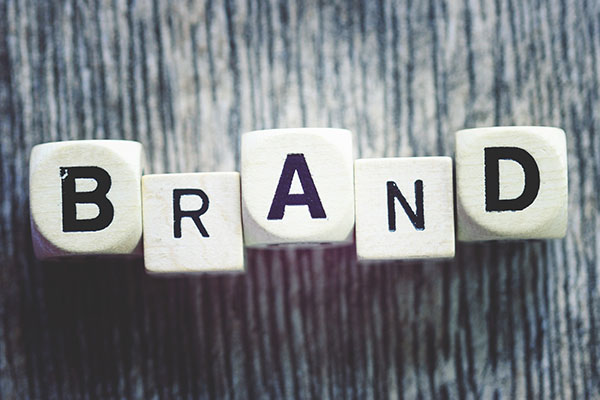
When did you realize how powerful ‘Let’s’ is?
I don’t use it every day, but it’s always one of my number one favorite words. I don’t put it everywhere that I go as an advisor. I’m going to say it’s easily a decade. I was working with a woman who’s a founder of a health coach training program. This line is no longer in use either but it was extremely met and measurably productive. Her field or area is nutrition, fitness, and weight loss. The line that we came up with was, “Let’s discover what you’re really hungry for.” Really was in italics, indicating it’s not food.
It’s love, affirmation, and safety. Love, affirmation, and safety pretty much cover it. Acknowledgment. As you can appreciate, those don’t sound like the stuff you run into all day long in those categories. You can’t look away. Once you hit that line if it’s relevant to you, there’s a pattern disruption. You’re not scrolling or swiping. All of that frenetic energy stops because it pierced your heart and soul.
I’ve got six pages of notes that I’ve had since we started.
I’m very flattered. I hope they’re yours to use.
Thank you. How do you go about helping someone discover, develop, create, manifest or whatever word you use for their tagline?
I’m very grateful for the question. It’s a very important question because most coaches, advisors, professionals and brands either sit in a boardroom or go to the Bahamas for three days and brainstorm it on a whiteboard. It’s all well-intended. I’m not knocking it. There’s a better way. Others will pay an agency a lot of money to say, “Please tell me who I am.” In my experience, because I always work with a scoreboard, I want the measurability that what I’m doing is performing mathematically and financially.
I don’t believe taglines are composed. When they’re clever or kitschy or when they sound like they came from a boardroom, they don’t. There’s plenty that came from a boardroom that is out there working but by and large, especially since every company has a voice and a soul, I would suggest taglines are at their most powerful and penetrating to the heart and soul of the reader if they’re not composed so much as they are revealed.
[bctt tweet=”Taglines are at their most powerful and penetrating to the heart and soul of the reader if they’re not composed so much as they are revealed.” username=”whyinstitute”]
If it was you, Gary, I would say it lives inside you. In the next few hours or the next day or two, we’re going to locate it like an archaeological dig. You brush away the sand and the pebbles and then you find the gleaming jewel that was buried in the sand. I’ve done this probably 40 or 50 times in recent years. This isn’t the gospel truth. A fly on the wall would not see this but it’s a way to hold the process. We’re not composing it. We’re revealing it because it’s a deep inquiry into the heart and soul of the founder and why she or he is doing what they’re doing. There’s always a reason. I used the word feel quite a bit. I work with people on their taglines.
When I go through this process, let’s say I’m with someone and I hear a woman use the word freedom in a period of a few minutes. I’ll say, “I want to acknowledge. I’ve heard the word freedom a number of times in the last few minutes. What does freedom mean to you?” What does Feel mean to me? I’ll say, “What does freedom mean to you?” It’s partly hearing that word and noticing the pattern. It’s partly noticing their physiology. Are they joyous or somber? Are they crying? What do I see on their face that’s connected to the words that are coming out of their mouth, especially when there’s a pattern? I’ll say, “What does the word freedom mean to you?” We will go down that path.
I’m always listening and watching for patterns. Usually, the tagline will come out of the person’s mouth. They don’t even know it. They’re in a flow state. They’re speaking. All of a sudden, I’ll say, “What did you say? Say that again.” A lot of times, lightning hits the room. It’s done because it got revealed. It’s a promise to the world. It’s very clearly articulated. It passes every test some of which I shared. It passes every test you could throw at it. It originated in the heart and soul of a human being with a purpose. That’s why it lands so powerfully with the reader. How it reached the eyes and/or ears of the prospect connects as deeply as it originated.
It’s interesting because where we started is almost where we’re finishing. As a kid, you were put in a position of trying to figure out, “What’s going on here? What do I notice? What are the little things I’m picking up on to try to figure out what’s happening here? What are we trying to say here?” That’s what you’ve done your whole life. You’ve got systems and processes for it but you were doing it as a little kid.
Thank you for noticing that. I had not put those together. I’m very grateful for your observation. Thank you.
We do our why our whole life. It’s why I would choose you and what makes you special. For those of you that are reading, Michael’s why is to make sense of the complex and challenging. He does that by challenging the status quo, thinking outside the box, thinking differently, and pushing limits. Ultimately, what he brings is that trusting relationship where others can count on him. Michael, we’re running out of time so I want to make sure that you get an opportunity. If they’re saying, “I want to work with him. I want to follow him and see what he’s doing,” what’s the best way for people to get in touch with you? What kind of people would you like to get in touch with you?
I typically coach and advise founders not limited to but principally in wellness, fitness, or personal development on messaging, positioning, and business growth with some of the tools and things we have discussed. I’m advising a woman who in turn coaches executives and other people who get in front of other people on media and speaking skills. I’m advising an eCommerce site and golf apparel. They’re way up. If anybody feels an affinity for this work, I would invite you to reach out.
You don’t need to be in wellness, fitness, or personal development. If you’re on purpose and you’re passionate about what you do, it is a calling for you, and the currency of success for you is impact, I would be honored to talk to you. Please know that. My DMs are open on both Instagram and Twitter if you’re on either of those platforms. Most people have one or the other or both. That would be best.
Michael, thank you so much for being here. I thoroughly enjoyed this. I have seven pages of notes. You got me thinking differently. The little things or the choice of a word is so powerful that I’ve got to think more about it so that it’s on purpose versus not clear.
Thank you, Gary. I’m honored about this visit, for this conversation, and to have made a difference if I have. I point out things that are hidden in plain sight. Thank you for this honor. I enjoyed it.
—
It’s time for our new segment, Guess the Why. I’m going to pick Snoop Dogg. I don’t know a ton about Snoop Dogg. He’s a rapper. He has stayed relevant for a long time. He’s in a lot of commercials still. He’s well-liked by a lot of people. He doesn’t seem like he’s a big troublemaker or that he’s caught up in being a gangster and all that stuff, but that’s just my impression. I’m not sure. If I had to go with what Snoop Dogg’s why is, I’m going to go with contribute. It seems like he wants to help, be part of it, and help other people do better as well. It’s not only about him.
That’s my impression, and I may be wrong. I would love to hear what you think Snoop Dogg’s why is. Thank you so much for reading. If you’ve not yet discovered your why, you can go to WhyInstitute.com with the code, PODCAST50. Discover your why at half price. If you love the show, please don’t forget to subscribe below and leave a review and rating on whatever platform that you’re using because that will help get us to more people. I enjoy bringing the why and the WHY.os to the world so that we can have a bigger impact and help one billion people live their life on purpose. Thank you so much for reading. I’ll see you next time.
Important Links
- Consumer Health Summit
- Instagram – Michael Fishman
- Twitter – Michael Fishman
- WHY.os
About Michael Fishman
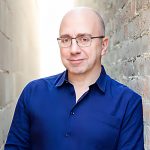 Growth advisor to founders
Growth advisor to founders
